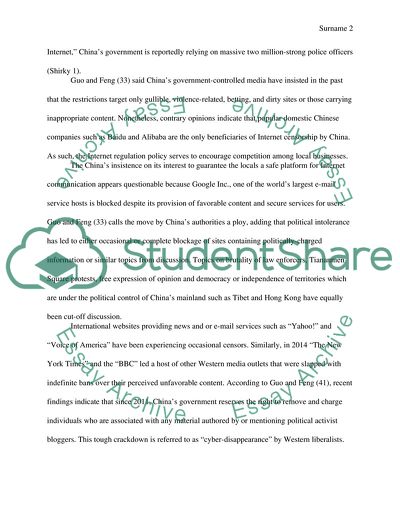Cite this document
(Internet Censorship in China Essay Example | Topics and Well Written Essays - 1500 words, n.d.)
Internet Censorship in China Essay Example | Topics and Well Written Essays - 1500 words. https://studentshare.org/politics/1862998-the-internet-censorship-in-china
Internet Censorship in China Essay Example | Topics and Well Written Essays - 1500 words. https://studentshare.org/politics/1862998-the-internet-censorship-in-china
(Internet Censorship in China Essay Example | Topics and Well Written Essays - 1500 Words)
Internet Censorship in China Essay Example | Topics and Well Written Essays - 1500 Words. https://studentshare.org/politics/1862998-the-internet-censorship-in-china.
Internet Censorship in China Essay Example | Topics and Well Written Essays - 1500 Words. https://studentshare.org/politics/1862998-the-internet-censorship-in-china.
“Internet Censorship in China Essay Example | Topics and Well Written Essays - 1500 Words”. https://studentshare.org/politics/1862998-the-internet-censorship-in-china.


